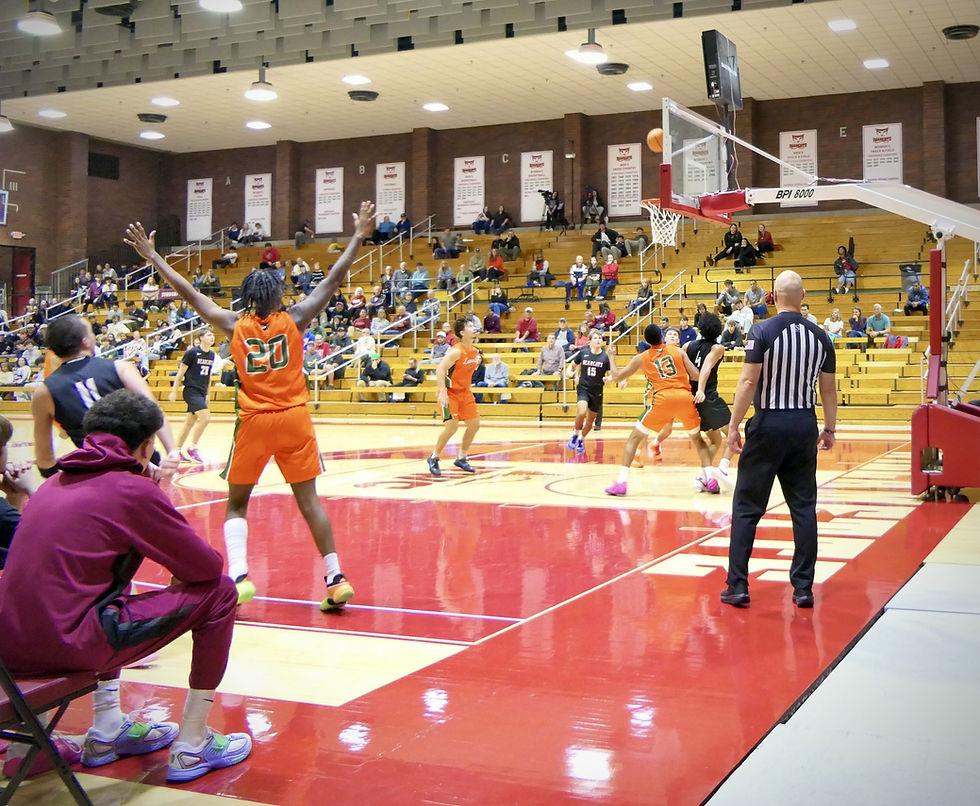Balancing act: student-athletes discuss managing sports and music ensembles
- Collegian staff
- Apr 13, 2020
- 3 min read
Jake Procino
Staff writer
jprocino@willamette.edu
At Willamette, around 349 students are involved in intercollegiate sports, according to the University website. About 125 students are in music ensembles. But only a select handful of Bearcats take on the balancing act of managing both, in addition to their academic work.
Some student-athletes actually chose Willamette over other schools because of the possibility to be involved in both sports and music at the same time. Sophomore cross-country runner Audrey Piacsek, who plays viola in the University Chamber Orchestra (UCO), reflected on her college decision: “My second-choice college was a D-II school, but I ended up choosing Willamette in large part because of the cross-country and track programs. I knew that I wanted to run, but running has never defined my entire life and I didn't want to sacrifice school for it, so D-III seemed like a good option… I initially didn't think I would get to play viola in college, but I talked to professors in the department and found out that I could start with just a small chamber ensemble, which would take up less time than being in the orchestra. Both programs ended up tipping me over the edge to come here.”
Others, like senior softball player Olivia Scott, who plays clarinet in the UCO and in a woodwind quintet, used the possibility of doing both as a filter in her college search. “Both music and softball were something I didn’t want to give up in college, so finding a school that would let me do both was really important to my college search,” Scott said.
While Willamette athletics makes doing both non-athletic activities a realistic possibility, balancing sports and music takes a commitment to time management. Senior football player and Collegian sports editor James Willis, who plays trombone in Jazz Collective, talked about the difficulties of doing both: “It can be hard to find time to practice [music] during the season, as a lot of your time gets taken by the sport. Additionally, injuries can prevent you from practicing [music].”
Sometimes scheduling conflicts arise and the student-athletes have to sacrifice a music rehearsal, performance or a practice. “I have had to miss rehearsals and performances for softball,” said Scott. “The orchestra always has a large spring concert on the weekends in the afternoon and that’s always when our games are. Professor Agüero [the University Chamber Orchestra and Wind Ensemble conductor] has been really good about working with me and my softball schedule, but it’s definitely a bummer to miss the big spring concert each year. While I haven’t missed games for music, I have had to miss some softball practices for important rehearsals I couldn’t miss.”
While the connection between music and sports may seem disparate to some, the two activities can assist with one another. “Both activities require you to add commitments to your schedule, so I think discipline is definitely the biggest overlapping skill,” said sophomore track athlete Jeremy Falk, who plays viola in the UCO. “I think a less obvious way that the activities reinforce each other is through attention to detail. There is a lot of physical technique that goes into playing the viola that parallels how I think about improving my running mechanics.”
Piacsek added: “I grew up performing on stages and in competitions because I was in music from a young age, so by the time I started running I was used to the pressure of performing in front of people. In the other direction, I think that seeing how much my running improved with practice helped encourage me to practice viola and gave me the confidence to push myself. Many of my friends were in both music and cross-country, and they pushed me to audition for an orchestra in a city about an hour away. I got in and it ended up being one of my favorite experiences of high school.”
For first-year football player Chris Brown, who plays trumpet in Jazz Collective, “I had stage confidence well before I had athletic confidence and my concerts and public performances definitely made me more confident.” Trumpet playing has also improved Brown’s lung capacity, which is useful for cardio in football.
For others like Scott, both music and athletics serve a similar purpose: “The clarinet and softball are both activities that provide me a lot of stress relief so when I’m overwhelmed or stressed in one of those activities, I have the other to turn to. I definitely started playing my clarinet a lot more at college once [the] season was cancelled to take my mind off all that was happening around me.”




Comments